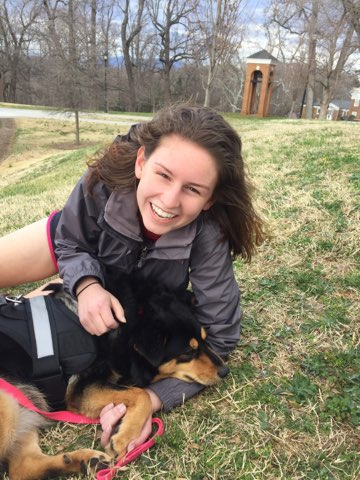
Matthew Fichtel, Guest Writer~
Georgie DeCosmo, Guest Writer~
Lynchburg College allows qualified students to obtain an emotional support animal (ESA) to live with them on campus.
LC students with mental disabilities may apply to have an ESA. This animal should help reduce or diminish an aspect of the student’s disability, but is not trained in the same way that service animals are. The LC website states, “Lynchburg College is committed to allowing an ESA necessary to provide individuals with disabilities an equal opportunity to use and enjoy college housing.”
LC class of 2017 alumna, Allie Rodriguez, adopted her emotional support cat, Spartacus, in 2015. Rodriguez said that “the process was pretty simple, luckily.” The LC website notes that students must apply for an ESA, apply for a housing accommodation and get the necessary documentation for their disability from their doctor. Both the student and the animal must get approved by the LC disability services coordinator, Julia Timmons.
Timmons declined to comment further on the process. However, the LC housing coordinator, Terry Bodine, noted that “there are some restrictions on type of animal,” which include factors such as weight, vaccinations and behavior.

The Fair Housing Amendments Act highlights the positive impact that an ESA can have on a person with disabilities.
LC junior, Katie Highsmith, adopted her emotional support dog, Moana, in 2017. Highsmith said, “knowing that there’s something else that’s relying on me helps me get my day started.” Rodriguez said that having Spartacus “changed everything for me” and that she “started taking better care of myself, because I had to be well enough to take care of him.”
Having an animal on campus does entail some responsibility. Highsmith said that having an ESA is “kind of like having a baby” and that they can be a financial and time-consuming burden. She also said that “people need to really take into consideration whether or not they can give that animal a good life.”
Rodriguez said that she “would highly suggest an ESA for anyone that qualifies and wants one.”







